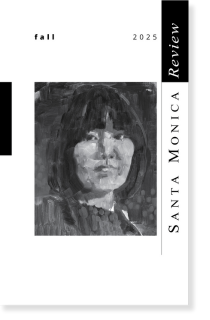AB Intra
Where was Mother now? In Heaven? In Hell? Nowhere I could reach. Where was my father? An Alzheimer’s facility in Wilmington, DL, blessedly unaware it was hell. —WAGMAN
This body had a mind of its own. What the undertaker mistook for bloat was in fact physical progression. At a time when autolysis should take hold, the flesh absorb itself, this stricken man was, well, expanding. —PITT
H
e is our own Walter Benjamin walking through the Paris Arcades, looking for traces of the past and the future in the landscape; another Guy Debord on a dérive figuring out how geography affects our behavior. —TANNENBAUM
S
ome of his mental slowness he could attribute to the heat, even when he sat right under the AC, and he hadn’t slept well, but what troubled him most was that ever since his bout with COVID he had had trouble thinking of synonyms, and forgot the names of some historical figures: throughout his entire essay on The Conquest of Bread, he had referred to the author as Kevorkian instead of Kropotkin. —PERKINS
M
aybe he should have alerted the Boss to her frequent adventuring, but deep-down Rex had admired the stoicism with which the cow accepted her lower lot in the world. It was so delicate. The way she worked through the hurt when no one was watching. —SALEEN
P
aul kind of runs the Catholic Worker, but would claim he’s just one community member of all of them, but he’s been there the longest and used to be a priest back in the ’80s. He doesn’t talk about it much other than to periodically joke that only an ex-priest is known primarily by a job he used to have. —HOSEK
T
he retirement home was located high above Sunset Boulevard, situated on a bluff that afforded a panoramic view of the city that could easily trick the viewer into thinking Los Angeles was still a beautiful place. —TAYYAR
A
n immense population you’ve never heard of is here — Percivall Pott, Archibald Stobo, Harriet Saltonstall, Chauncey Depew, on and on — as are Mark Twain, Queen Victoria, Robert Louis Stevenson, the unimaginably wealthy Astors. All of them, an army of them, enough to make a small city: last name, comma, first name. —GOLDBARTH
W
hen I fill the balloon with air I fill it with the words I am not saying. If I force the round balloon too fiercely into shape it will explode. It exploded. This is how we began. —CADNUM
T
hough I haven’t been their kin since twenty-one, when I fled from home with a wounded heart I believed could achieve the same escape velocity, some hope just as foolish won’t let me miss the wake of Minister Sinister, the last great heel of Appalachian Colosseum Wrestling. —ALESSI
S
potify’s algorithm really gets her. Not like those midwestern boys with their congenital beer guts who hyena-laughed when she told them her fifteen-point plan to land a reality show, or a record deal, or a YouTube sponsorship, or whatever, so long as everyone on the planet knows her name. Point one, of course, is Move to L.A. —ROSE
Q
uickly and quietly, I erased my memories of childhood. What I mean is that I simply never spent any time dwelling on anything that happened before I left home. Some of my friends still joke that I didn’t gain sentience until the age of eighteen, the year I moved out of my hometown. — MA
I
reached for my backpack, took out my father’s book, and waved it around, as if that would clear up any confusion. But Lonnie thought I wanted to add The Power of Positive Thinking to our collection of holy books, which struck him as hilarious. —SHERLINE

